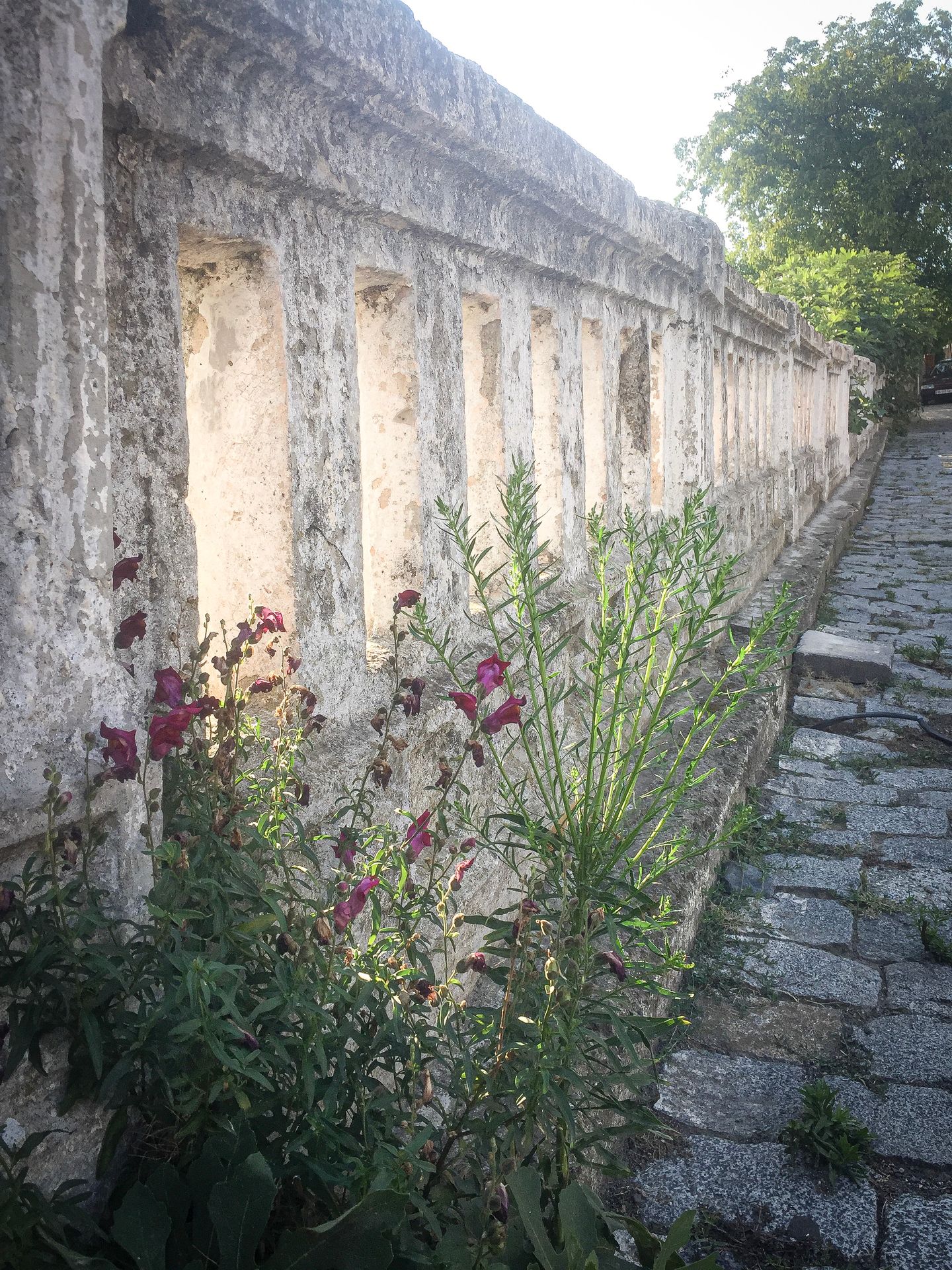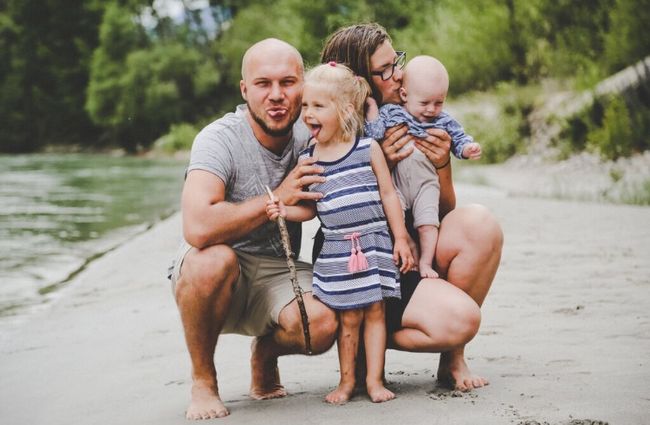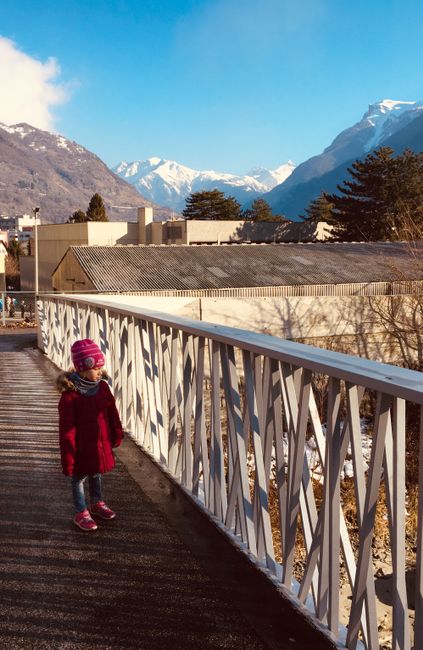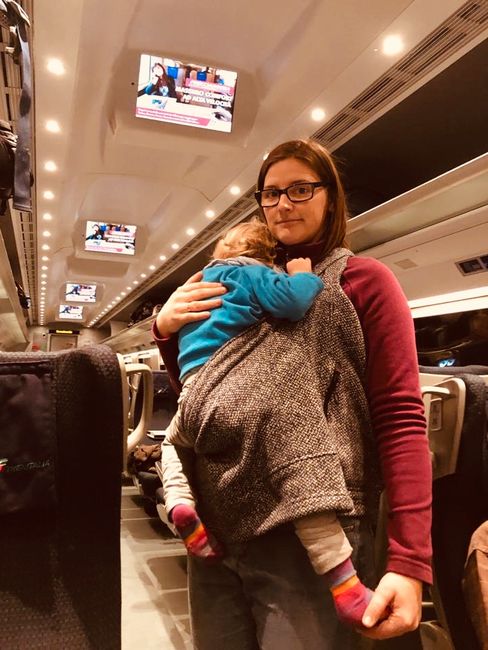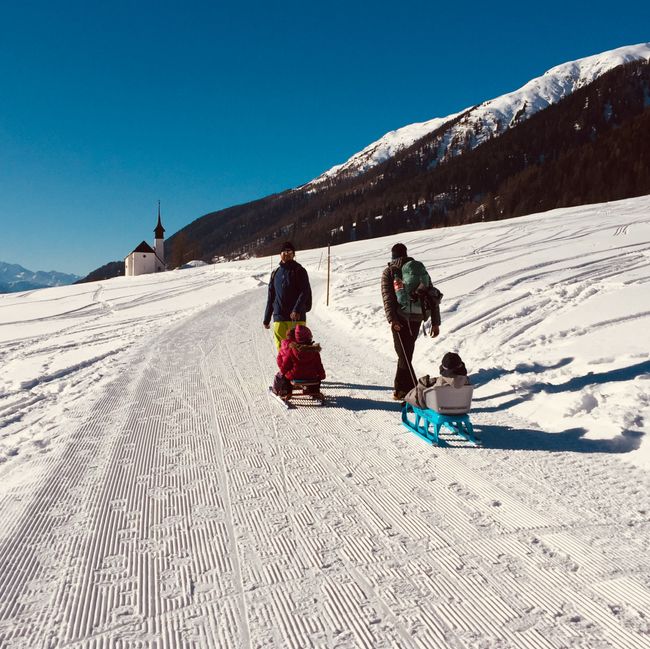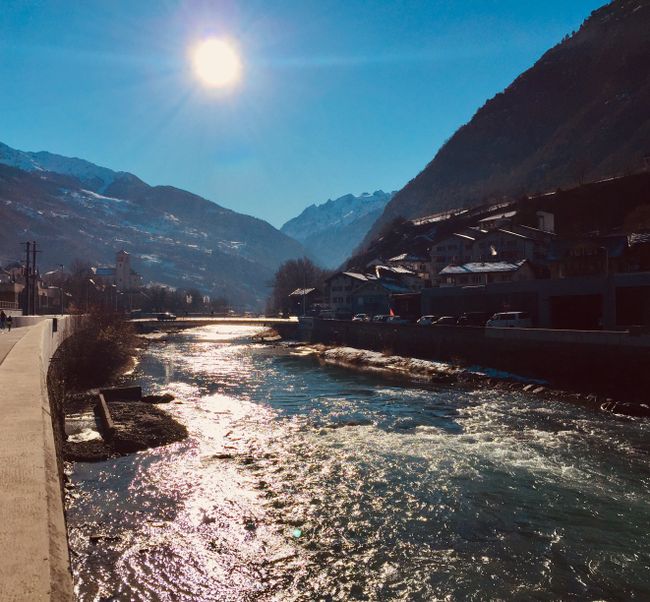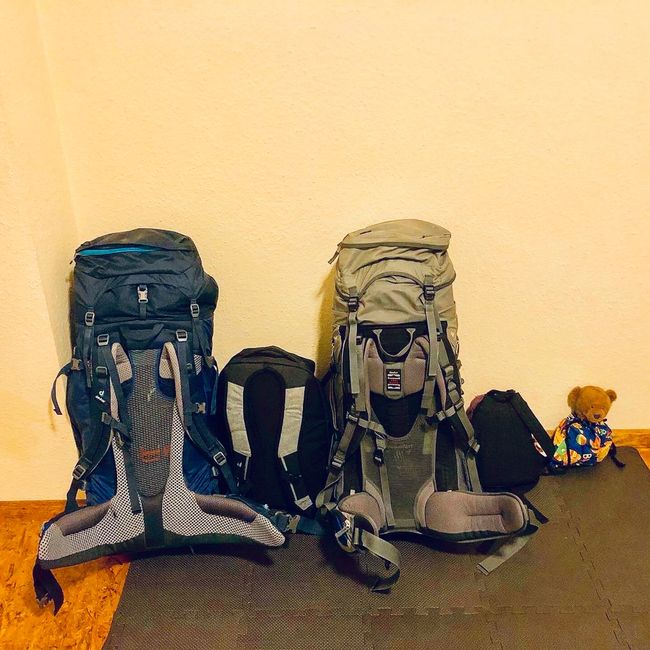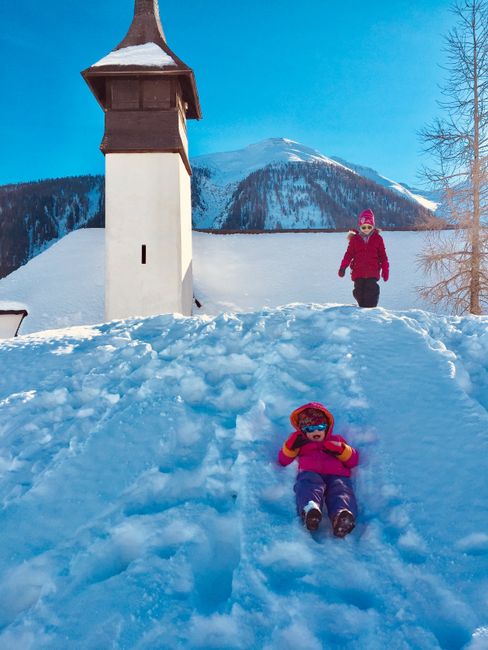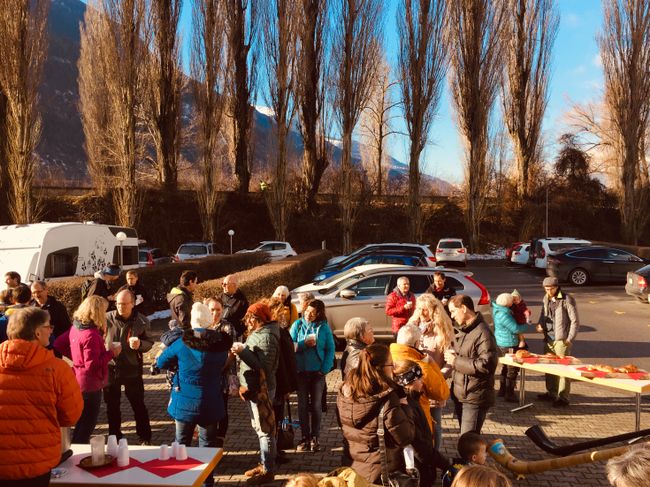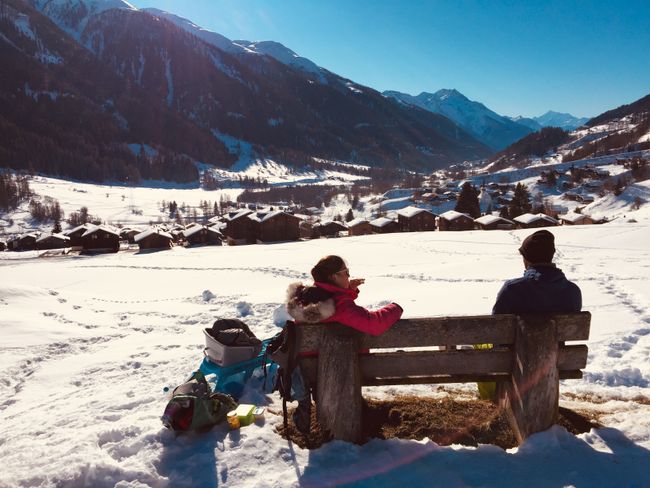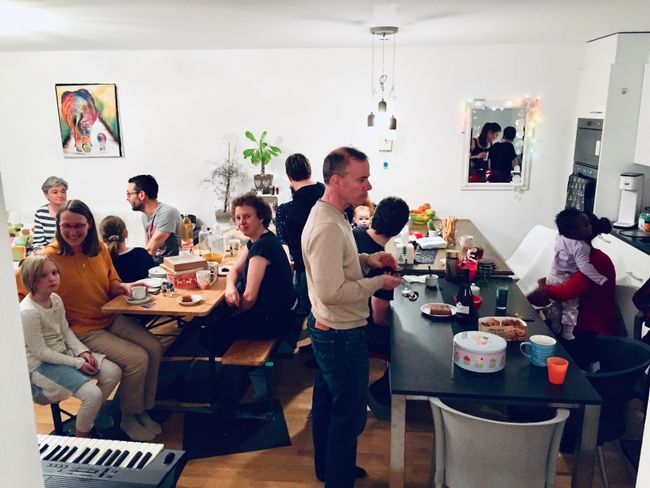Mountains of Memory
Naipablaak: 25.01.2020
Agsubscribe iti Newsletter
Since New Year's Eve we have been on the move a lot. We have traveled from Germany to Switzerland in stages, visiting our former home and many friends in the Valais, where we lived for almost 5 years. We were not in one place there either, but moved on every 2 or 3 nights. It was an intense and very beautiful time. Many valuable encounters, long evenings and laughter. And it strikes us what we always forget when we look back. And what not.

In the last few weeks we have slept in 7 different places, on friends' couches or in guest rooms. We have 2 large backpacks and our daypack. Actually, it is an art that we do not leave all our belongings behind every other day when we rush out of the door too late and say goodbye hectically. This art is very important to us, because we cannot afford to constantly buy new shoes or phone cables with so many changes. Toys and shampoos are particularly vulnerable to forgetting. Both are replaceable and not so tragic - our children are always happy about new cars or pens. The loss of clothes, the iPad or even a whole bag full of stuff is worse. Until yesterday, that never happened to us - an important item that was left behind. Until yesterday.
How did we manage to make so many bus trips, holiday apartments, rooms or visits and outsmart our (pardon: my) forgetfulness? How do we cope with the limited luggage space in our monstrous and heavy backpacks?
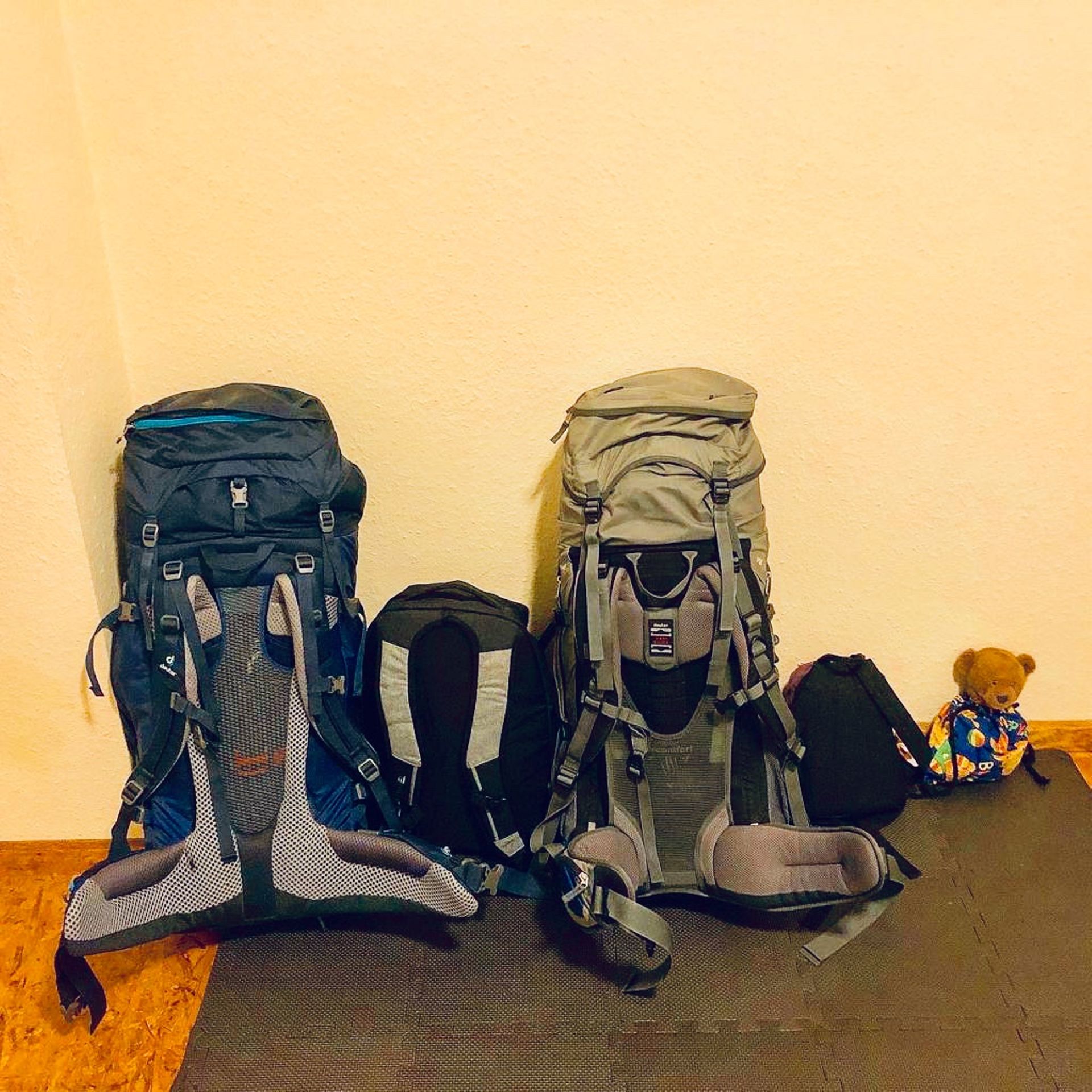
Our tricks consist of strategies that organized people probably always follow. For us, they are a new experience in their strictness.
Every object has its place. We have many small bags, bags and cases that are filled by theme. Everything we need to sleep is in one bag. Swimming gear, creams, winter accessories like scarves and leg warmers are clearly separated. And when you take something out, you should put it back there as quickly as possible. Those who know us know that this is incredibly easy for us order enthusiasts! Almost in our sleep.
Our daypack is always packed. Everything we need for an excursion or visit, i.e. food, drink, changing gear and tissues (usually rather a roll of toilet paper that we have been carrying around with us since the Caucasus), is always in the handy backpack. We replenish the supplies again and again and trust that somewhere in the depths of the backpack we will still find an emergency biscuit and a sock (as a replacement for gloves). So far, we have been doing quite well with it - of course, we often forget something or get annoyed about our bad communication ('What, you didn't pack the mandarins... I asked you, didn't I?'). And we are always happy when someone else spontaneously pulls out a tissue. But in general, we are quite happy not to have to pack again from scratch every time we leave a house (which tends to happen relatively frequently during the day).
We always take a look back. Before we leave, we go through the apartment again as detectives. Preferred hiding places are closets or the bathroom where you might still spot a bag or a towel hiding behind the door. The biggest accomplices of forgetfulness are, by the way, our children. They love to hide toys, distribute cans and papers under the sofa and are very creative when it comes to secret hoarding. It is difficult to do anything against these saboteurs. Toys can still be coped with (you can learn the consequences of hiding when the toy is really gone), but things like money are a different story. Our youngest once deposited a 50 Euro note under a mattress in Georgia. The host then informed us and we had to laugh that our daughter likes to distribute money gifts.
It is a constant struggle against forgetting. And yesterday it was 1:0 against us. At friends' house in Switzerland we forgot our baby carrier. The carrier that we have been carrying our children around the world with for 4 years. It is already very worn out and we would have had to replace it at some point anyway, but it is one of our most important items because we use it for several hours every day and it is our guarantee of falling asleep for two tired children. So on that day we improvised with a jacket and will now look for an alternative. But the thought that maybe someone else can benefit from the item comforts us a little.
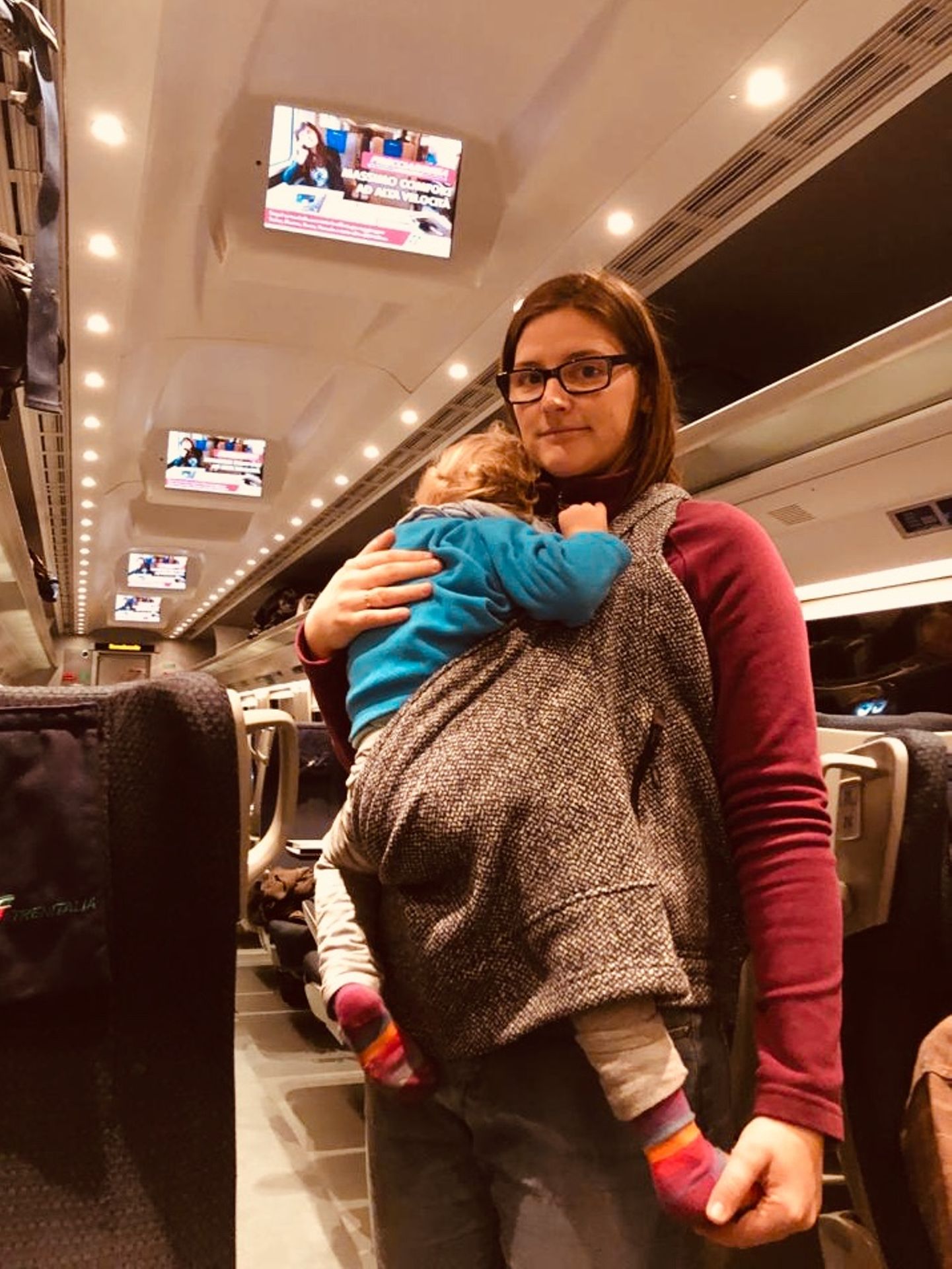
Actually, it is good that our brain constantly forgets. The information that was important to you yesterday does not have to be important today. Forgetting is an important mechanism against mental overload. Often, concrete details are not remembered, only diffuse feelings remain in our brains.
In the last few months, we have encountered so many people and places we were and are connected to. Shared times, experiences and everyday life leave their mark. Our visit to the Valais was particularly interesting for us. What memories come up, what have we forgotten and what not?
We forget what cold feels like and how much time we really spent trapped in the valley between mountain peaks. Because we romanticize. When we now look back from a distance, our memory recalls all the beautiful trips to the mountain world.
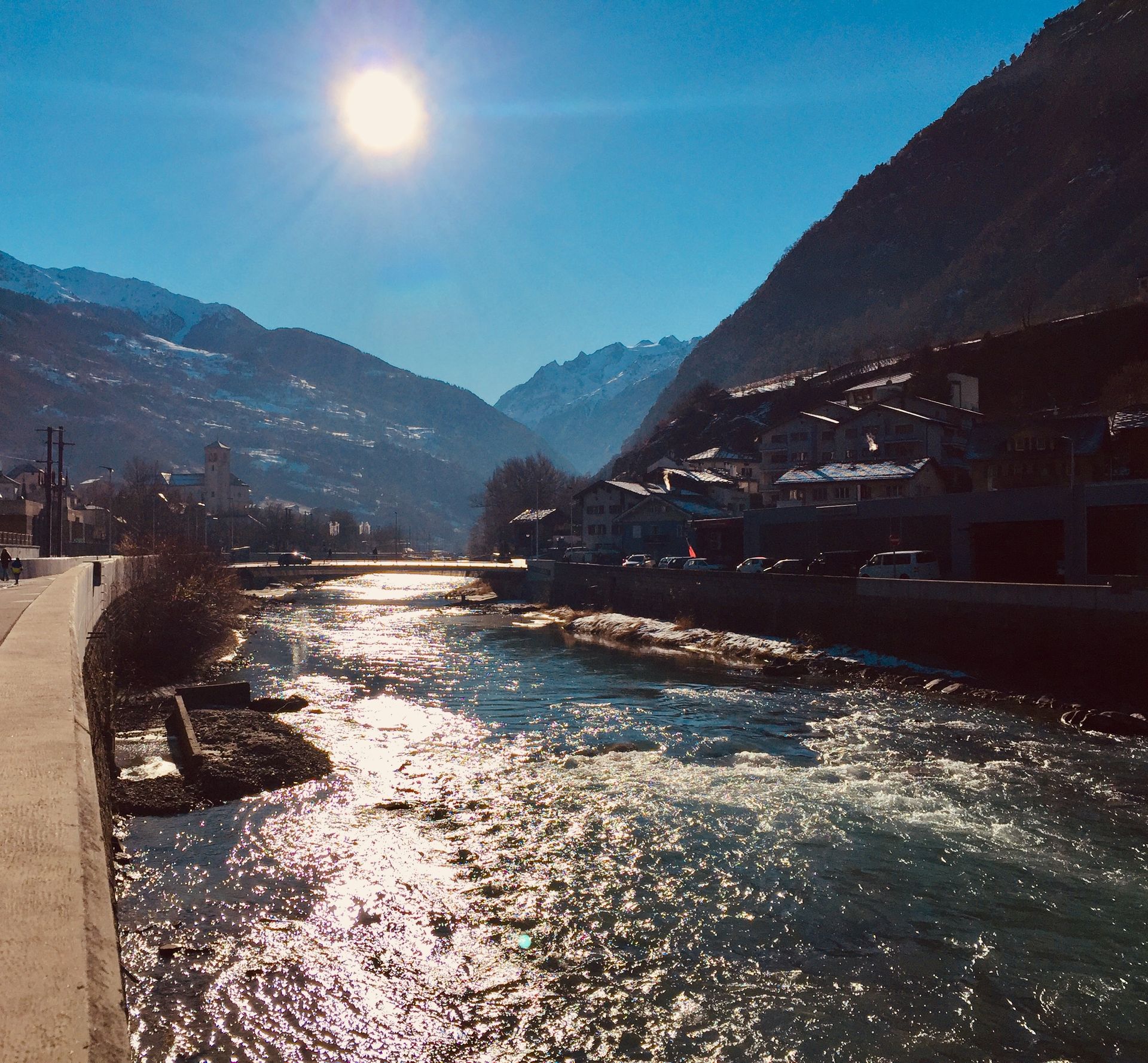
Sometimes we forget how long we actually lived in Switzerland and how intensively we maintained relationships. Sometimes it feels like a chapter in our lives, and then when we are there, we realize how filled this chapter was.
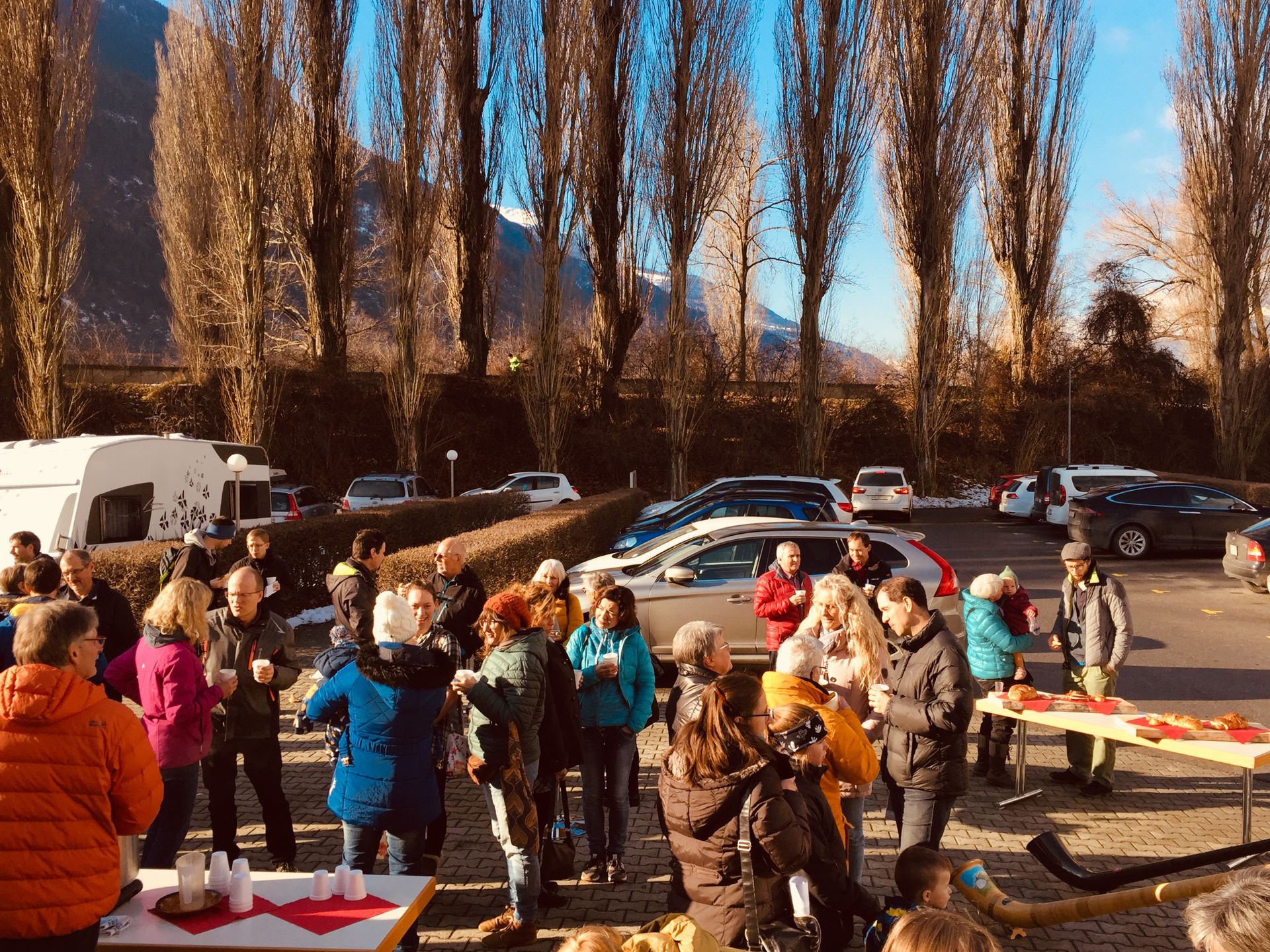
We have also forgotten how built up Switzerland is. How networked and man-made it is. So many power cables in every picture. In the meantime, we have been in so many regions where there are no human influences to be seen for hours.
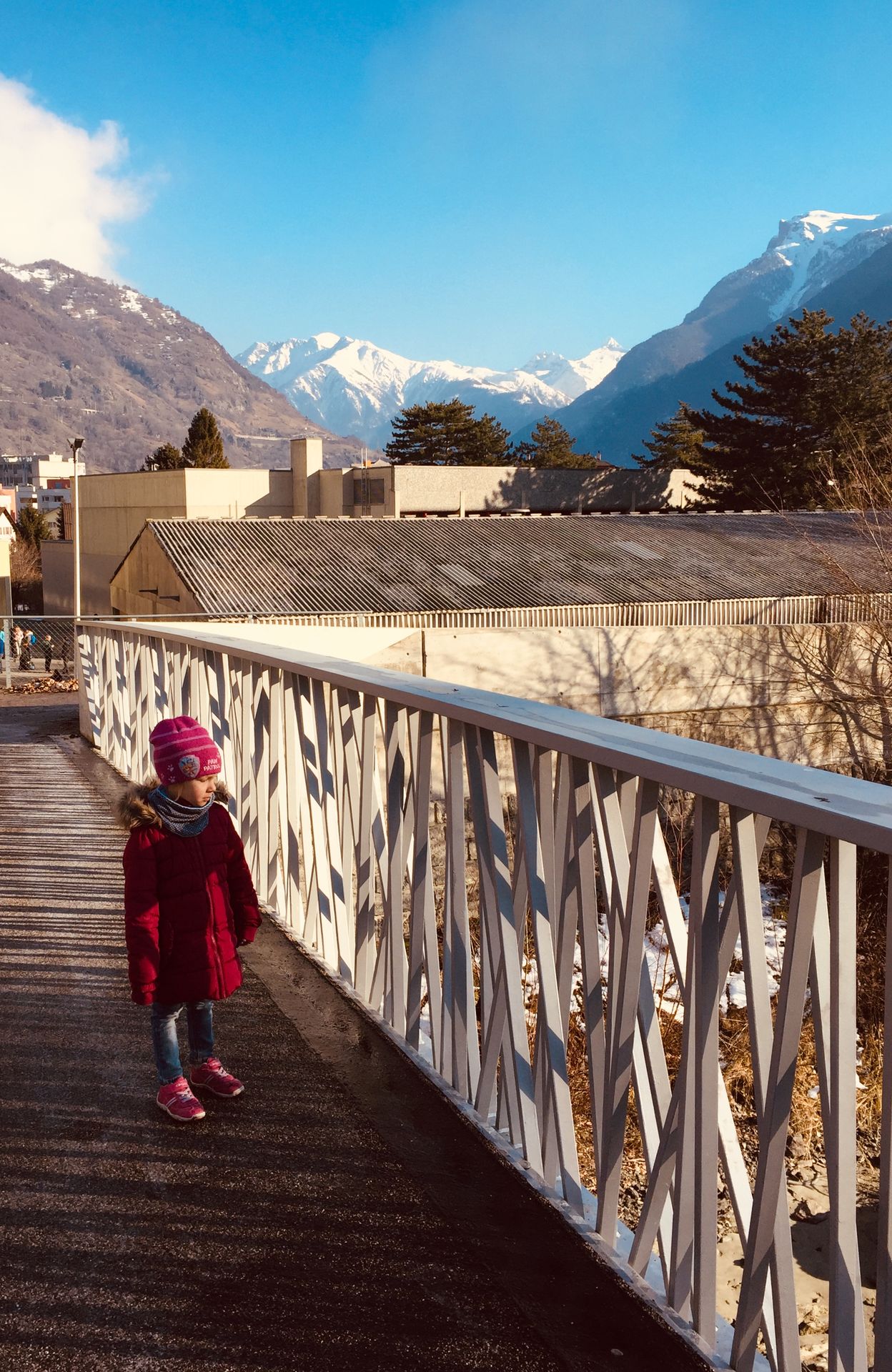
But we do not forget,
what we have shared with people and what they have shared with us. The stories, shared experiences and problems are invisibly present when we meet each other, and also when we are on the road. They resonate. This is called familiarity and can be something very beautiful.
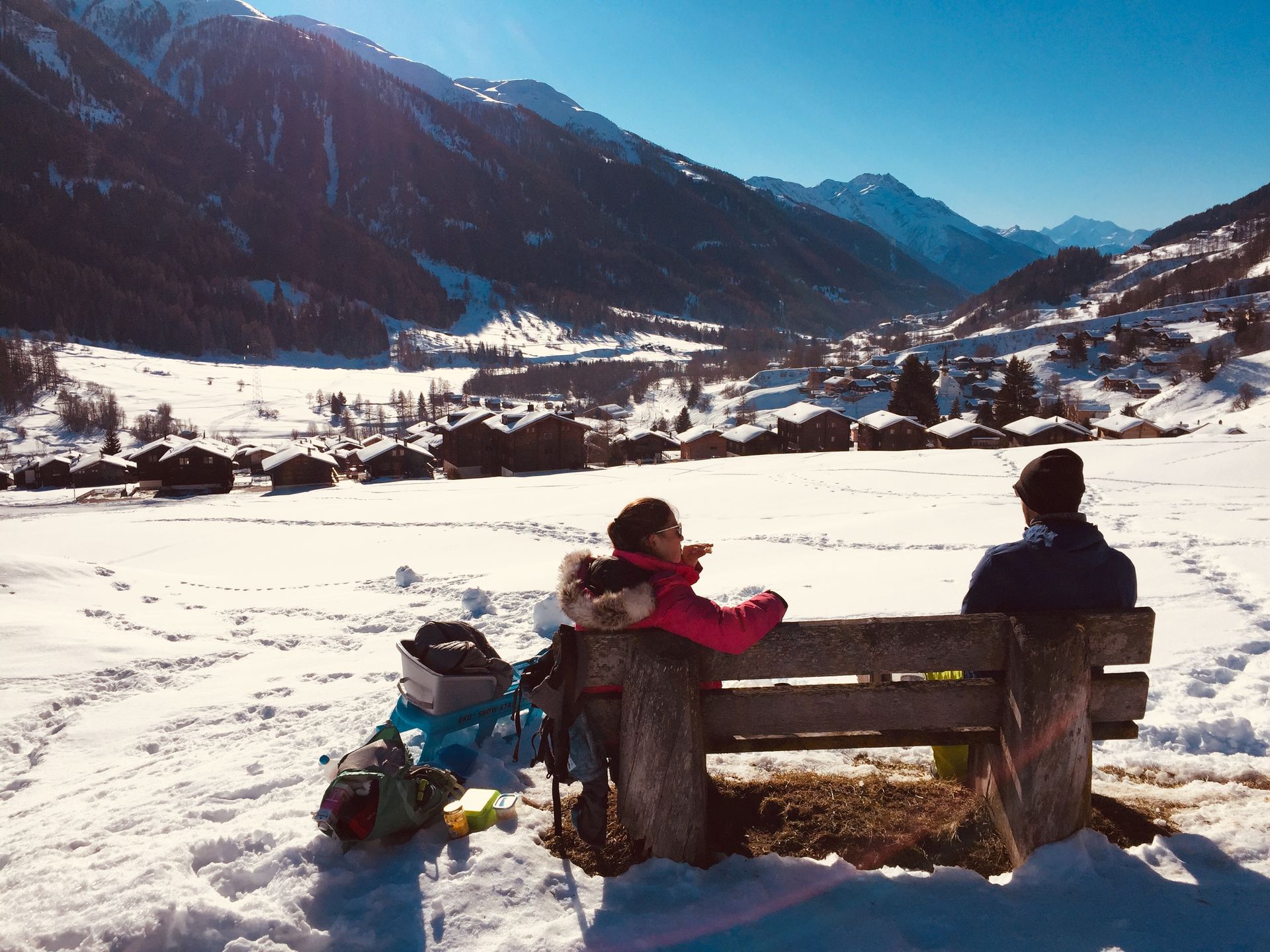
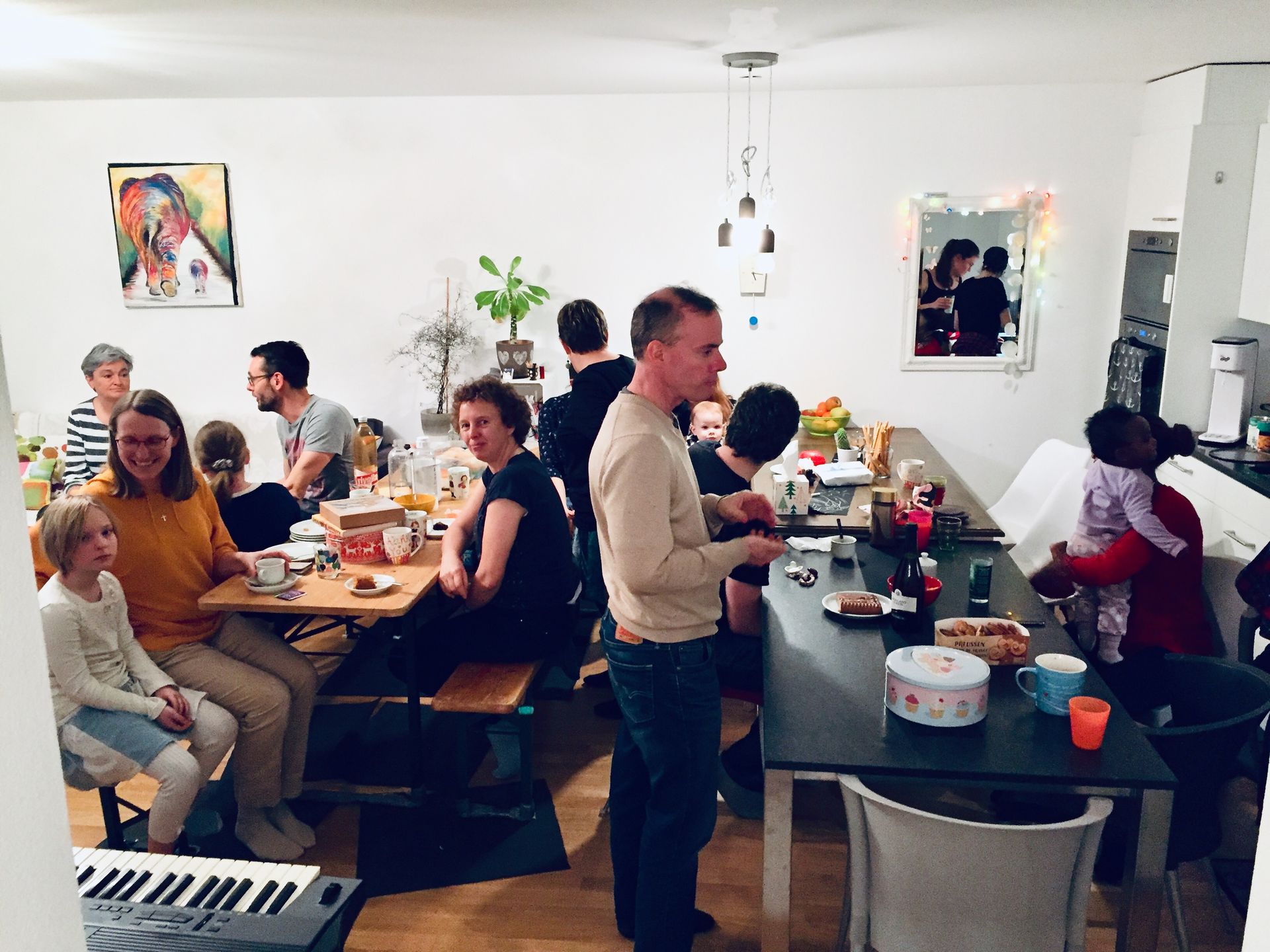
But we also do not forget that we are still on the road. Even if it felt like we were back home in Europe, we are only visitors. While we enjoy the community, we organize our onward journey late in the evening. When we see snow, we think of the beach. And that's why we appreciate the snow all the more.
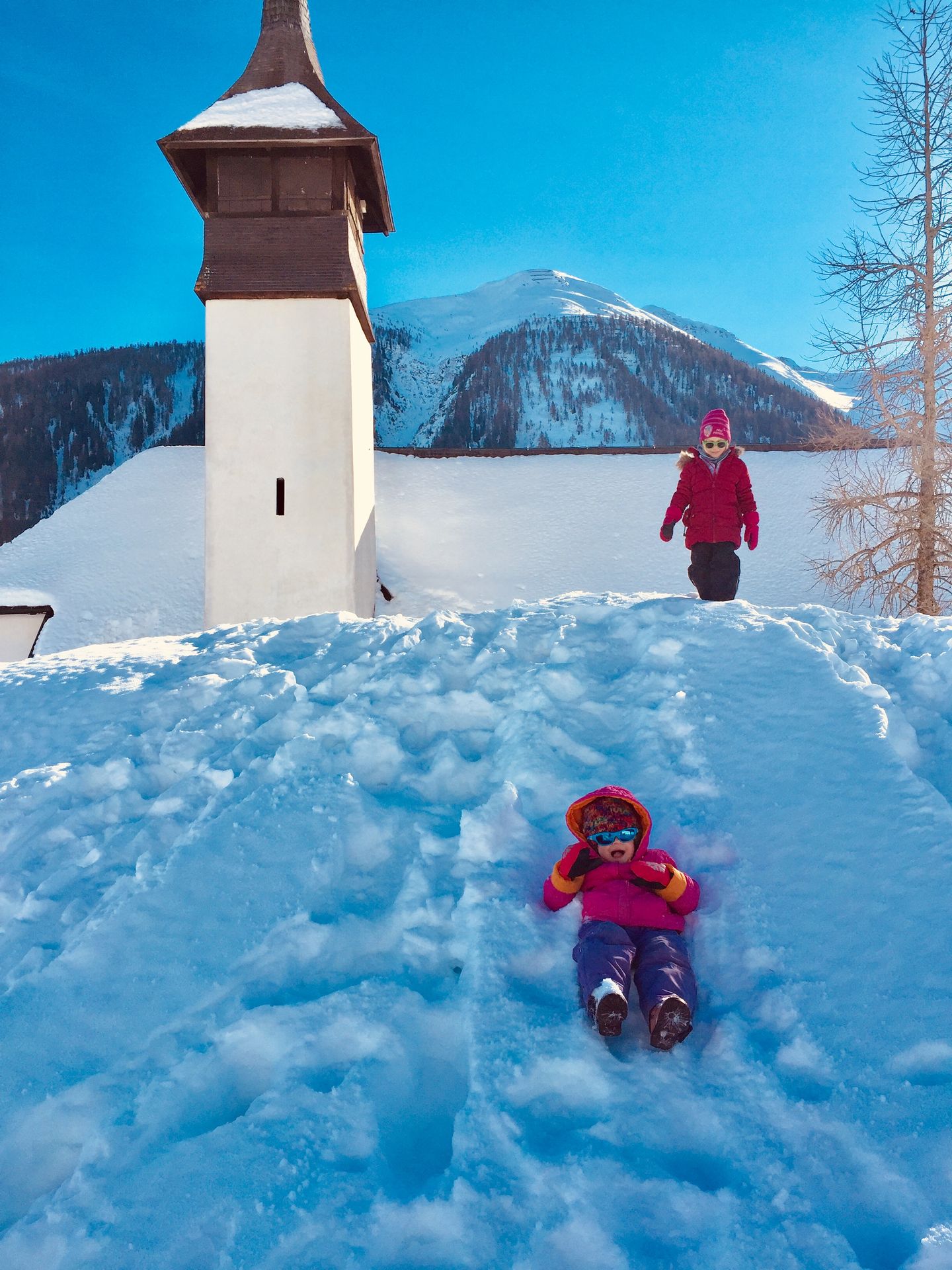
Forgetting can be important. Not carrying too much baggage. But not forgetting - regularly remembering, keeping the good, honoring the past - is an even greater achievement.

Agsubscribe iti Newsletter
Sungbat
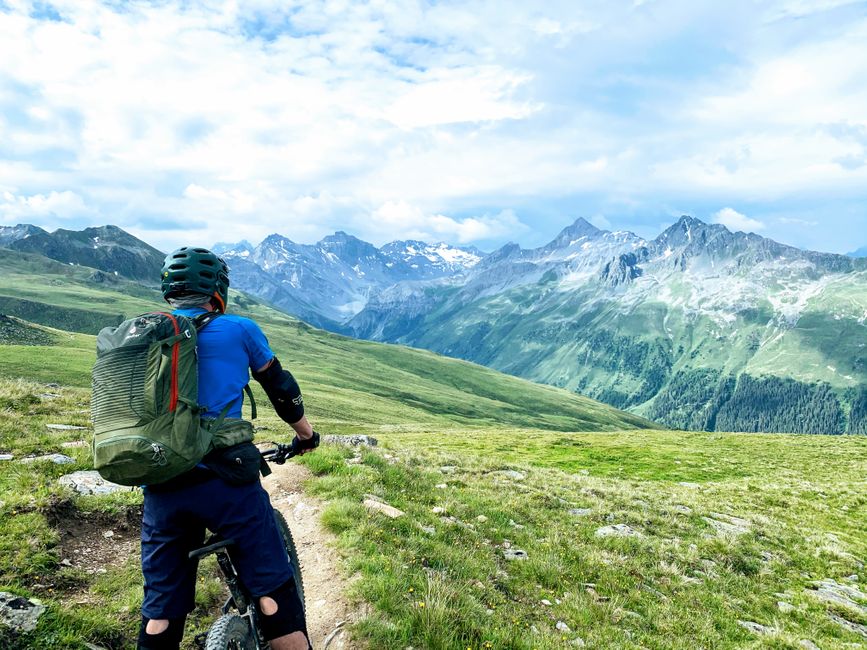
Dagiti report ti panagbiahe Switzerland
